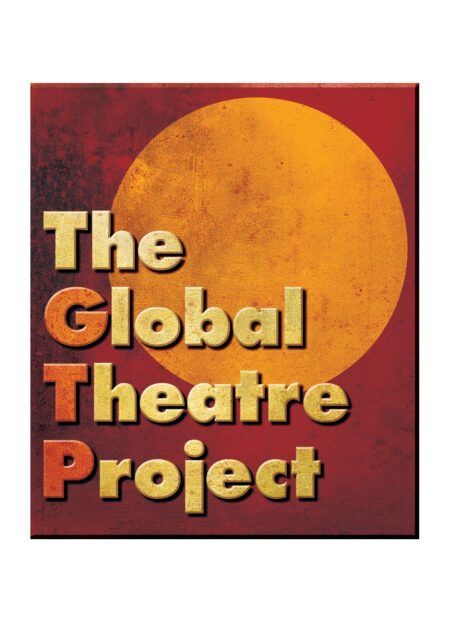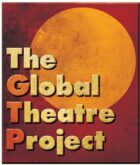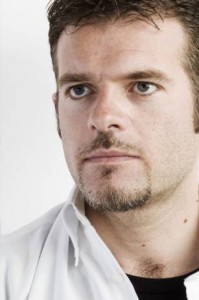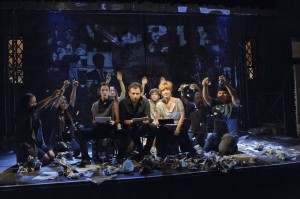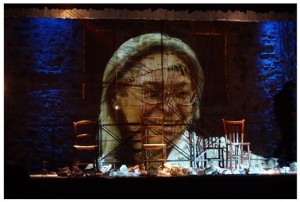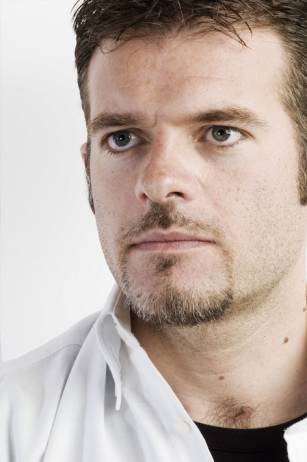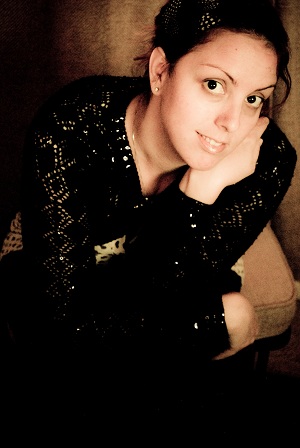Not Able to be Re-educated
“Art is the strongest reason that man has to being on the planet.”
Stefano Massini, playwright of Act 1: A Stubborn Woman: a theatrical memorandum on Anna Politkovksaya sat down with Actress Carolina Gamini in Florence. Since the video is in Italian, Carolina & Bari translated it. For our Italian speakers, we’ll get you the video soon!
Q: What compelled you to write A Stubborn Woman?
SM: Simply, when I found out about her death, of which I knew absolutely nothing, the thing that struck me the most was that someone had decided to eliminated this
journalist’s voice so that nobody would hear about what she committed her life to
reporting. I thought, in my small way with my profession, that I would be able to
go against this plan by writing a theatrical piece that would increase the number
of people hearing the story and get to know the story of Anna Politkovskaya. As a
consequence I wrote this text to go against the plan of those that decided to silence and muffle her voice.
Q: Can you tell us something about some of your other works?
SM: Currently I am writing a text that is the story of a trio of women who are interpreted by the same actress and who changes her the role she is playing according to the light shifts. It is the story of three women: a Palestinian, an Israeli and a female soldier who find themselves living in the same situation, the same moment and who talk about one another. Other texts that have been on stage: an adaptation of Frankenstein by Mary Shelley, the story of Van Gough when he was in the mental asylum, IL TRITTICO DELLE GABBIE which that takes place in a closed space allowing the audience to experience the internal life of three different inmates.
Q: How did you become involved with The Global Theatre Project?
SM: I became involved when I was a part of the organization of Festival della Creatività in Florence and was put in touch with Bari Hochwald, the Artistic Director, through a mutual friend. After a long exchange of emails with her, I sent her the text on Anna Politkovskaya which she read the text and was moved by. So much so that she decided to work on it. I had an experience of working with the students from the Theatre Immersion Project with Bari here in Florence and from this, the possibility to stage the play in Los Angeles arose.
Q: Can you tell us something about the experience from last summer?
SM: It was a very particular experience for me, as it always is every time this text is approached. Usually theatrical texts have written characters. But this text, on the other hand was written as a very open text with no characters. There are just a flow of words that can be interpreted either as a monologue by an individual actor or by a chorus. For example I remember that also here in Italy it was staged by two actors, a male and a female, directed by me and they shared the role of Anna Politkovksaya and at the same time there was also a great actress, Ottavia Piccolo, who did the performance as a monologue. She continues to perform it this way. In Brussels an additional performance has been done with 5 actors. In Bavaria there were two actors. In Teatre d’Europe it was represented with 25 actors. So there are various ways of staging this text. I was also intrigued to see the way that The Global Theatre Project approached it last summer using both singular and choral voices.
Q: Did you like this approach?
SM: It was very successful and interesting for me to see how it worked in English. Because English is a very theatrical language and was very interesting to hear how it sounded in the English language. And the actors were very good.
Q: Why did you leave the text open in this way for interpretation?
SM: I didn’t want to limit it but wanted it to be open and free for any theatre artist to perform and interpret. This text is different from my other work. With this play, I have never controlled the environment of the presentation or given the rights to some people and not to others to perform the show. I want this text to be presented in any way possible so that Anna’s voice can be heard and appreciated by everyone.
Q: What struck you the most about Anna’s story?
SM: Simply her courage. We live in a period where each one of us, due to our extreme individualism, look toward ourselves too much of the time. And we completely forget the situations outside ourselves. We have just come out of an era where it is 20 years since the fall of the Berlin wall. With that event ideologies have also fallen…. both the communist and anti-communist ideologies. Now we have entered into a moment with the collapse of the capitalist economy. It is very strong to see these people protesting in front of Wall Street. It is the collapse and breakdown of everything that had animated the 20th century ideologies. Ideologies that looked to taking care of what was not only individualist but collective. Including the working class, capitalism, economic growth, political and religious motivations and so on. Today we are witnessing a phenomenon which is completely opposite. We are witnessing the collapse of group ideologies and the rebirth of individual instinct. It is a selfish era that we are living in now.
While Anna Politkovskaya is exactly the opposite of all this. She lives for her cause in a post Soviet, post ideological
Russia. In a Russia that no longer has an ideology that unites it. But where the most anarchic, diverse tendencies are enacted (so much so that a war is needed for uniting the country). And her life demonstrates the value of living for a cause greater than herself. I find this something which is totally against the norm and holds great value in the sharing of it.
Q: Do you think that art has a power in the world?
SM: Yes, the strongest power that exists. In the sense that the human being differentiates itself from other animals because he is capable of creating art. Which doesn’t mean that the magnificent dams built by beavers and the beehives of bees aren’t extraordinarily artistic, but the Sistine Chapel or the Pergola Theatre, where we are now, are testimonies of the genius of man. Art doesn’t only have the possibility of communicating. Art is the strongest reason that man has to being on the planet. It is not politics, it is not economy, it is art that makes the difference.
I would like to also say something, which is that I have always been surprised by the translation of A Stubborn Woman, with the use of the word ‘stubborn’. The title is not exactly translated correctly. Because the title in Italian literally means ‘A woman not able to be re-educated’. But that doesn’t sound very good. That is what the title actually means, however.
